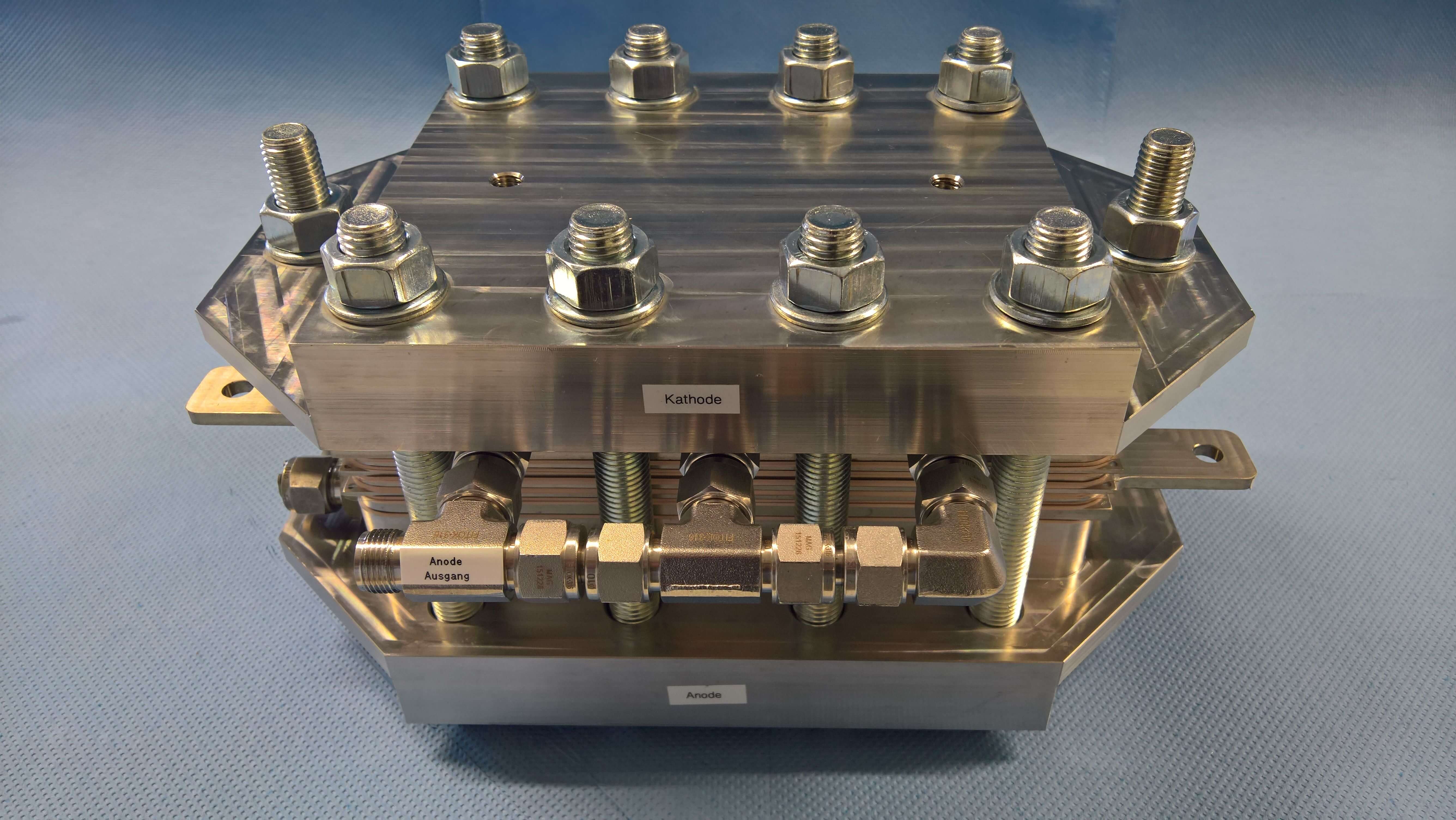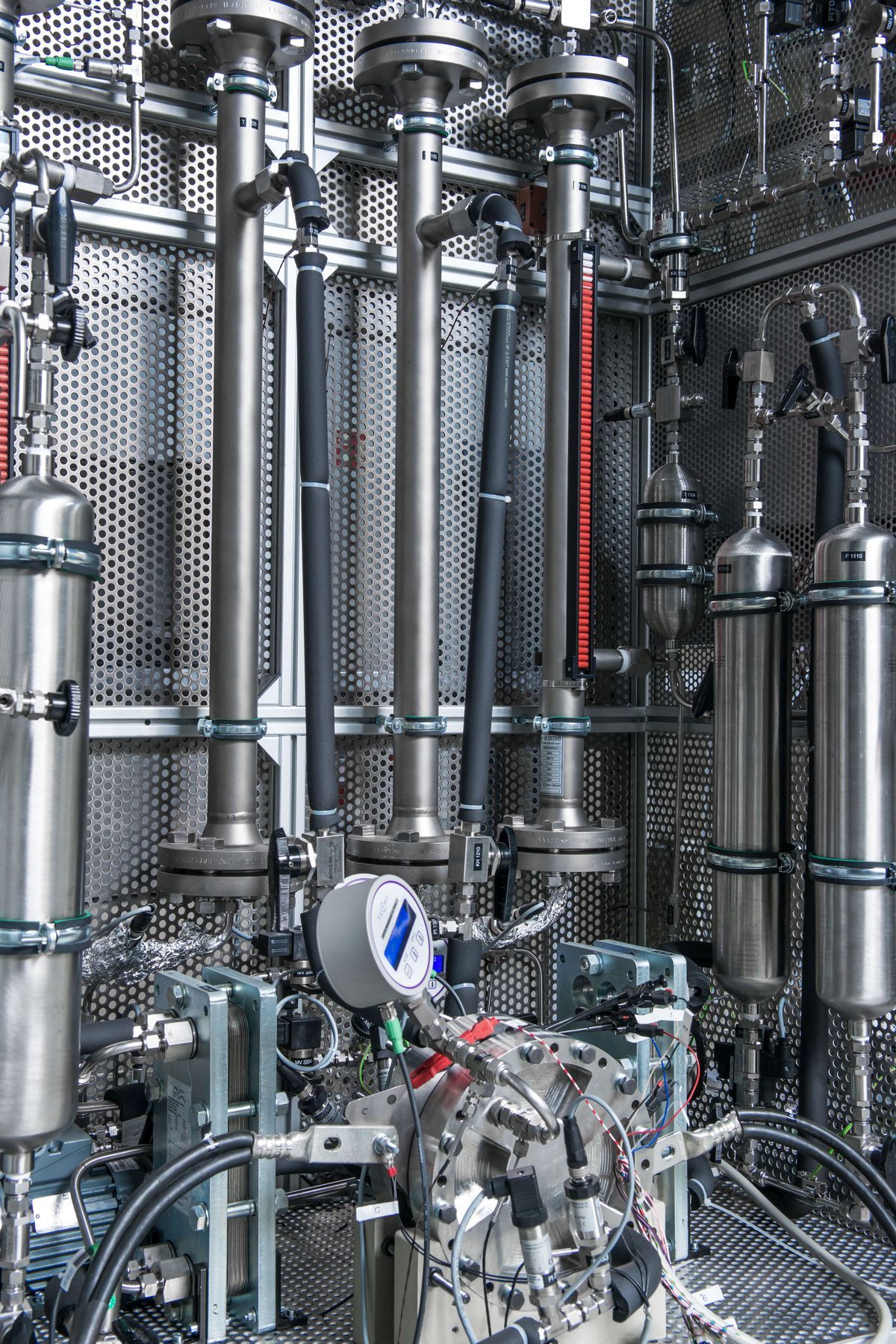| Duration: | November 2015 - October 2018 |
| Contracting Authority/ Sponsors: | Federal Ministry for Economic Affairs and Energy (BMWi) |
| Project Partners: | Robert Bosch GmbH |
| Project Focus: |
DESS2020 – District and Energy Supply System 2020+


In the wake of the energy revolution, there has been a considerable expansion of the generation capacities of fluctuating, regenerative energies in recent years. A further gradual conversion of the German energy supply is to be expected by 2050. Against the background of security of supply, energy efficiency and profitability, this conversion poses challenges for innovative, local energy storage systems that make it possible to increase own consumption of renewable energy without additional grid load.
In the project DESS2020+ ("District energy storage and supply system 2020+") an energy storage and supply system for self-generated electricity for neighborhoods is therefore to be developed. In this system, the energy paths power, heat and gas are connected at neighborhood level in the sense of efficient use through the targeted combination of a PEM electrolyzer, a SOFC fuel cell and storage tanks for hydrogen.
In addition to scaling the output range (kW) and storage volume (kWh) according to demand, the fuel flexibility of a SOFC enables the system to use renewable hydrogen as a storage medium and grid-related natural gas as an additional source of energy generation according to demand. The development of a low-maintenance, highly efficient electrochemical compressor also opens up the option of using renewable energies locally and across sectors in transport. This will create a system that enables the storage and increased use of renewable energies while reducing the seasonal supply bottleneck and thus, as a pioneer of this technology, will contribute to the gradual switch to > 80% renewable energies in accordance with the German government's energy concept.